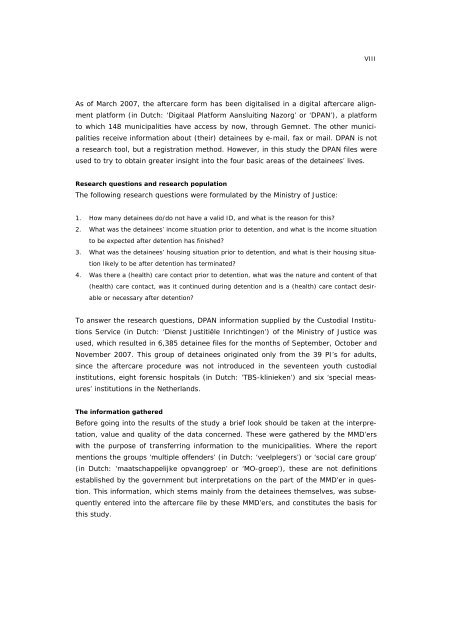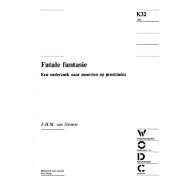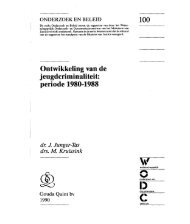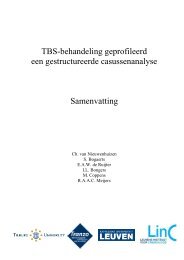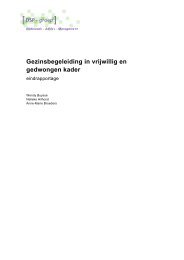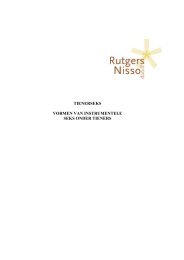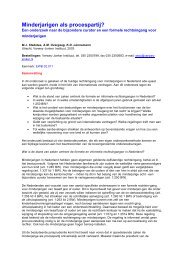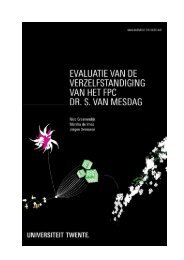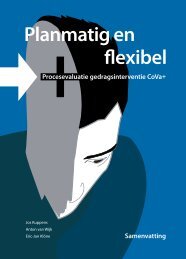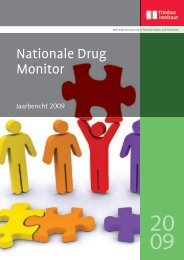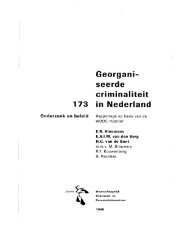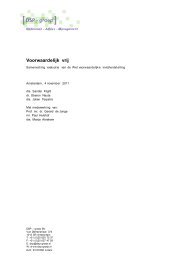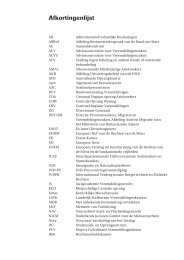Van binnen naar buiten - WODC
Van binnen naar buiten - WODC
Van binnen naar buiten - WODC
Create successful ePaper yourself
Turn your PDF publications into a flip-book with our unique Google optimized e-Paper software.
VIIIAs of March 2007, the aftercare form has been digitalised in a digital aftercare alignmentplatform (in Dutch: ‘Digitaal Platform Aansluiting Nazorg’ or ‘DPAN’), a platformto which 148 municipalities have access by now, through Gemnet. The other municipalitiesreceive information about (their) detainees by e-mail, fax or mail. DPAN is nota research tool, but a registration method. However, in this study the DPAN files wereused to try to obtain greater insight into the four basic areas of the detainees’ lives.Research questions and research populationThe following research questions were formulated by the Ministry of Justice:1. How many detainees do/do not have a valid ID, and what is the reason for this?2. What was the detainees’ income situation prior to detention, and what is the income situationto be expected after detention has finished?3. What was the detainees’ housing situation prior to detention, and what is their housing situationlikely to be after detention has terminated?4. Was there a (health) care contact prior to detention, what was the nature and content of that(health) care contact, was it continued during detention and is a (health) care contact desirableor necessary after detention?To answer the research questions, DPAN information supplied by the Custodial InstitutionsService (in Dutch: ‘Dienst Justitiële Inrichtingen’) of the Ministry of Justice wasused, which resulted in 6,385 detainee files for the months of September, October andNovember 2007. This group of detainees originated only from the 39 PI’s for adults,since the aftercare procedure was not introduced in the seventeen youth custodialinstitutions, eight forensic hospitals (in Dutch: ‘TBS-klinieken’) and six ‘special measures’institutions in the Netherlands.The information gatheredBefore going into the results of the study a brief look should be taken at the interpretation,value and quality of the data concerned. These were gathered by the MMD’erswith the purpose of transferring information to the municipalities. Where the reportmentions the groups ‘multiple offenders’ (in Dutch: ‘veelplegers’) or ‘social care group’(in Dutch: ‘maatschappelijke opvanggroep’ or ‘MO-groep’), these are not definitionsestablished by the government but interpretations on the part of the MMD’er in question.This information, which stems mainly from the detainees themselves, was subsequentlyentered into the aftercare file by these MMD’ers, and constitutes the basis forthis study.


